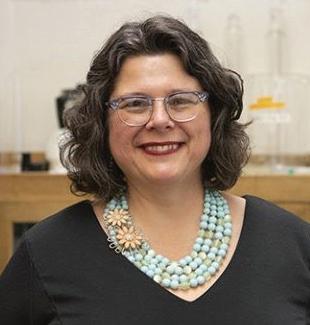3 minute read
Grantsmanship
The art of the move: Burma Art Collection gets a new home
Since 1986, NIU has been the home of the Burma Art Collection, which contains more than 13,500 art objects, ancient manuscripts, books, maps, and music all under the care of the Center for Burma Studies (CBS). Many pieces were housed in various campus locations, including a storage space in Swen Parson Hall and the Southeast Asia and Special collections at Founders Library, the Davis Hall Map Library, and the Music Library. Over the years, the public was able to view curated exhibitions from the collection at NIU and as far away as the Asia Society in New York. But the goal was always to find a more permanent home. In late fall 2019, CBS Director Catherine Raymond applied for funding from NIU, the Burma Studies Foundation, and the Institute of Museum and Library Sciences to begin converting a 2,000-square-foot space in the lower level of Founders into a state-of-the-art permanent secure storage facility. With funding in place, construction of the new space began in earnest in 2020. Raymond and CBS Program Coordinator Carmin Berchiolly (M.A. art history, 2018), Karla Findley (M.A. anthropology, 2017), and graduate assistant Shelby School of Art and Design graduate students Larissa Barnat and Angie Redmond helped map out a gallery wall in the new storage space for paintings. CBS Director Catherine Raymond , at right, shows off the organized and protected shelving for the collection’s many objects. Holtz (M.A. candidate, history) started planning the move to the new climatecontrolled facility to take place over spring and summer 2021. Other students were hired to physically assist in the move itself, taking piece by precious piece over the bridge from Swen Parson Hall to Founders. School of Art and Design graduate students Larissa Barnat and Angie Redmond helped map out a gallery wall in the new space as part of their Museum Studies certificate. “Artists in their own right, they choose to intern with us and took the lead in surveying, digitizing, mapping and exhibiting for the first time the exceptional Burmese paintings in the collection dating from independence in 1948 to today,” Raymond said. It has been a great opportunity for students have a museumquality experience, noted Raymond, for whom this has been not only a teachable moment, but a labor of love.

continued from page 13 over time. By the middle of June, the measures had clearly worked and Chiang Mai had again defeated the Coronavirus. There was a celebration when the last of the patients housed at the field hospital went home.
A week later, the Delta variant was detected in Bangkok. Cases again rose throughout the country, but the complacency that had prompted most Thais to “wait and see” with vaccination has led to a situation where it is nearly impossible to find vaccines available, even for those eligible. In some places, Thais and at-risk residents can get the Sinovac vaccine. In other places such as private hospitals, pre-booked supplies of Moderna and AstraZeneca vaccines sell out within minutes of their initial offerings. As of mid-July, the situation in Chiang Mai was cautious and steady as the numbers of the Delta variant increased.
The next hurdle is whether the bulk of the fully vaccinated population that received Sinovac will remain protected over the long term. The situation changes daily, sometimes multiple times in a week. In the week beginning Sunday, July 11, the public was told Monday, July 12, that Sinovac is safe and effective. Tuesday, we were told that those receiving Sinovac will need a booster shot of AstraZeneca. Wednesday we learned that those eligible to receive vaccines will receive one shot of Sinovac and one shot of AstraZeneca. On Thursday, we were notified that there are no vaccines available anyway. One wonders where this will lead, but rest assured, someone in Chiang Mai will again publish that the city has again defeated Coronavirus once this wave subsides. In the meantime, all we can do is wait for confirmation that our vaccination registration can be matched to a dose.
James Dewitz (M.A. history, 2015) is a freelance photojournalist, teacher and researcher in Thailand. He is still waiting for a vaccination.

